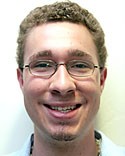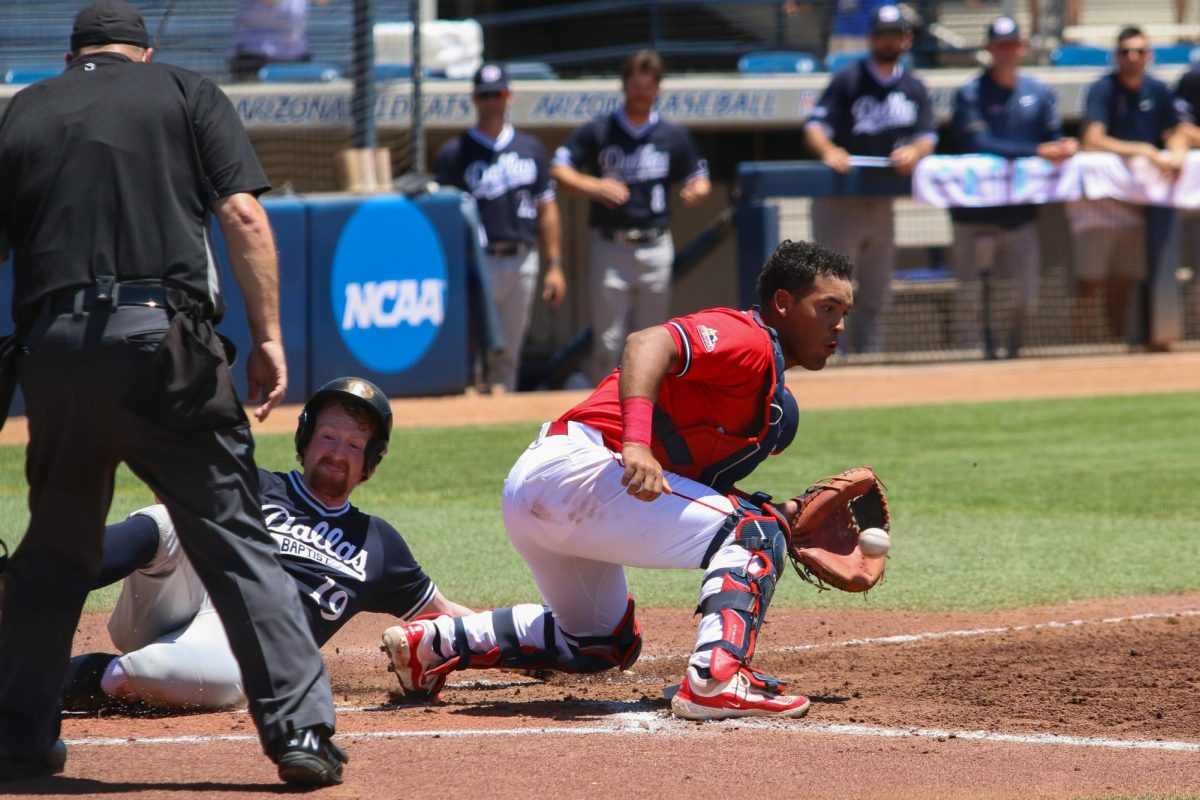The Arizona men’s basketball team has more in store this summer than junior forward Ivan Radenovic taking it home to his mother for some Serbian-style home cooking or sophomore walk-on forward Bret Brielmaier taking in the sights of famous architecture in Rome.
This squad of young men has the opportunity of a lifetime, getting a chance to see places that some of us can only learn about in books, newspapers or in a college lecture.
Belgrade, Serbia and Montenegro, which was embroiled in a war filled with ethnic cleansings less than 10 years ago, is a city stuck in a region nowhere near a lasting or complete peace. Ethnic Albanians and the minority Serbs are still bitterly divided over independence movements, the status of Kosovo and mistrust after years of war in Bosnia-Herzegovina and Croatia orchestrated by the late former president Slobodan Milosevic.
More than 250,000 people were said to have died over a decade in the region due to Milosevic’s policies.
While the Wildcats’ basketball team is in Serbia and Montenegro, it gives Radenovic a
chance to show his teammates a world devoid of the peace the United States experiences and the security people have to be themselves and practice their own beliefs without fear of reprisals from their government.
The Wildcats were due to receive a bit of a history and culture lesson from retired professor Donna Swaim in a week-long session after finals. But because of concerns that such a class might violate NCAA rules, the class has been cancelled, according to men’s basketball media relations liaison Richard Paige.
The Wildcats now, more than ever, need to take advantage of their teammates and the coaching staff to truly absorb the knowledge this trip can provide them, more than just basketball smarts.
The Wildcats have other foreigners on their team, and redshirt freshman forward Mohamed Tangara may have the best understanding of what Radenovic’s family and country went through. His native Mali, a landlocked nation in northwest Africa, was ruled by a ruthless military dictatorship until 1992 and was subject to coup attempts and more than one famine. It is one of the poorest nations in the world.
The life expectancy there is less than 50 years for both men and women, according to United Nations statistics.
The Wildcats had planned to stop in Mali on the trip so Tangara would be able to visit his hometown of Bamako, but an outbreak of yellow fever in the country forced the team to reconsider. The group will stick to Belgrade, then make multiple stops in Italy before moving on to Barcelona, Spain, and Paris.
The Wildcats have a golden opportunity to understand more about the world they live in beyond just looking at historically significant buildings and artwork in Rome or viewing the Eiffel Tower in Paris.
There are so many problems that the world has seen that Americans have remained relatively sheltered from, and people tend to know very little about the world around them.
The perfect example of this came up last night on ESPN’s broadcast of the Mavericks-Clippers game. Bill Walton, father of former Arizona Wildcat forward and current Los Angeles Laker Luke Walton, was doing the color commentary for the game, and was remarking on Clippers center Boniface N’Dong, a native of Dakar, Senegal.
Walton commented that Senegal, because it lacked oil, must be the safest nation in Africa. While Senegal may have a relatively stable economy in comparison to other countries, its main staple of fishing has come under recent duress in the fall of 2005.
The southern region of Casamance is in the midst of a long rebuilding project in a landmine-filled region after more than two decades of warfare between government forces and rebels from the Movement for the Democratic Forces of Casamance.
There is much that people can learn about the world simply by reading foreign newspapers or magazines like The Economist or National Geographic.
How much better then is it for our basketball players to see firsthand a country that has gone through far more than its share of struggle and sorrows, to take with them an appreciation for how good we have it here in America and to thank God that he has blessed them with an ability that gives them a better life?
I can guarantee you Radenovic’s parents do every day.









